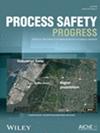Environmental, social, governance : The future of process safety management or repeat of the past?
IF 1
4区 工程技术
Q4 ENGINEERING, CHEMICAL
引用次数: 0
Abstract
Abstract Sites have implemented process safety management (PSM) systems, initially for Occupational Safety and Health Administration (OSHA) PSM and the Environmental Protection Agency (EPA) risk management program (RMP) compliance. Then later, they adapted those systems for risk‐based process safety (RBPS). They discovered the power of leveraging these foundational systems of procedures, tools, and practices for numerous follow‐on initiatives: for example, action management, API‐1173, SIS/IEC‐61511; cybersecurity/IEC 62443; API‐754/Vision 2020 metrics; ISO 14001. Today, companies are increasingly serious about environmental, social, governance (ESG) issues, and demonstrate progress by leveraging the S&P global corporate sustainability assessment (CSA). Interestingly, 63% of the CSA elements rely on information directly or indirectly produced by PSM systems. The existing PSM systems may require additional data collection, or additional lifecycles, in their business processes to satisfy the ESG/CSA requirements. Process safety professionals have a critically important role in supporting local and corporate ESG initiatives. ESG initiatives are indeed the “new game in town” to promote continuous improvement in process safety.环境、社会、治理:过程安全管理的未来还是过去的重复?
工厂已经实施了过程安全管理(PSM)系统,最初是为了符合职业安全与健康管理局(OSHA)的PSM和环境保护局(EPA)的风险管理计划(RMP)。然后,他们将这些系统用于基于风险的过程安全(RBPS)。他们发现了利用这些程序、工具和实践的基础系统进行许多后续计划的力量:例如,行动管理、API - 1173、SIS/IEC - 61511;网络安全/ IEC 62443;API‐754/Vision 2020指标;ISO 14001。如今,企业越来越重视环境、社会和治理(ESG)问题,并通过利用标准普尔全球企业可持续发展评估(CSA)来展示进展。有趣的是,63%的CSA元素依赖于PSM系统直接或间接产生的信息。现有的PSM系统在其业务流程中可能需要额外的数据收集,或额外的生命周期,以满足ESG/CSA需求。过程安全专业人员在支持本地和企业ESG计划方面发挥着至关重要的作用。ESG倡议确实是促进过程安全持续改进的“新游戏”。
本文章由计算机程序翻译,如有差异,请以英文原文为准。
求助全文
约1分钟内获得全文
求助全文
来源期刊

Process Safety Progress
工程技术-工程:化工
CiteScore
2.20
自引率
10.00%
发文量
99
审稿时长
6-12 weeks
期刊介绍:
Process Safety Progress covers process safety for engineering professionals. It addresses such topics as incident investigations/case histories, hazardous chemicals management, hazardous leaks prevention, risk assessment, process hazards evaluation, industrial hygiene, fire and explosion analysis, preventive maintenance, vapor cloud dispersion, and regulatory compliance, training, education, and other areas in process safety and loss prevention, including emerging concerns like plant and/or process security. Papers from the annual Loss Prevention Symposium and other AIChE safety conferences are automatically considered for publication, but unsolicited papers, particularly those addressing process safety issues in emerging technologies and industries are encouraged and evaluated equally.
 求助内容:
求助内容: 应助结果提醒方式:
应助结果提醒方式:


